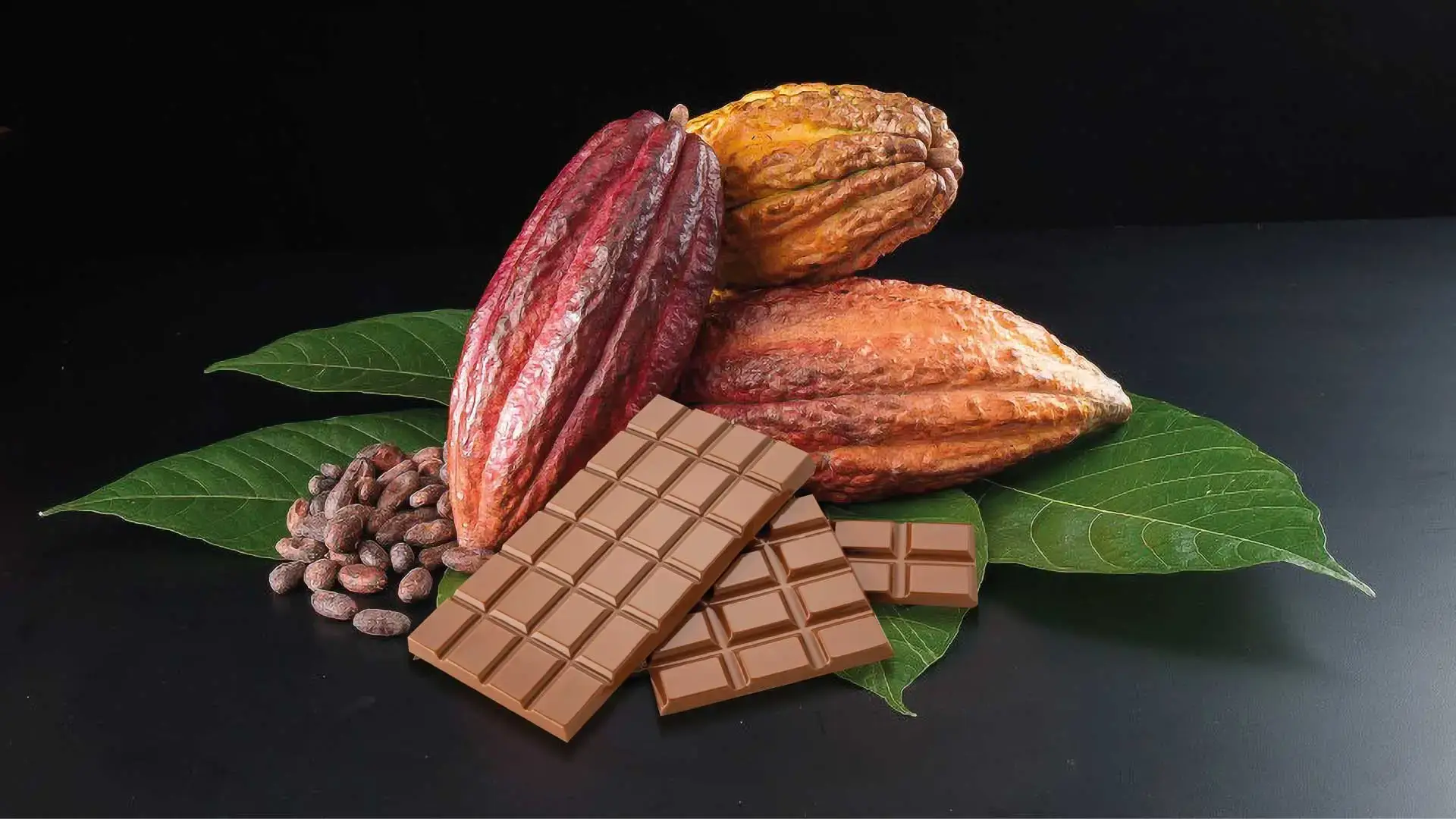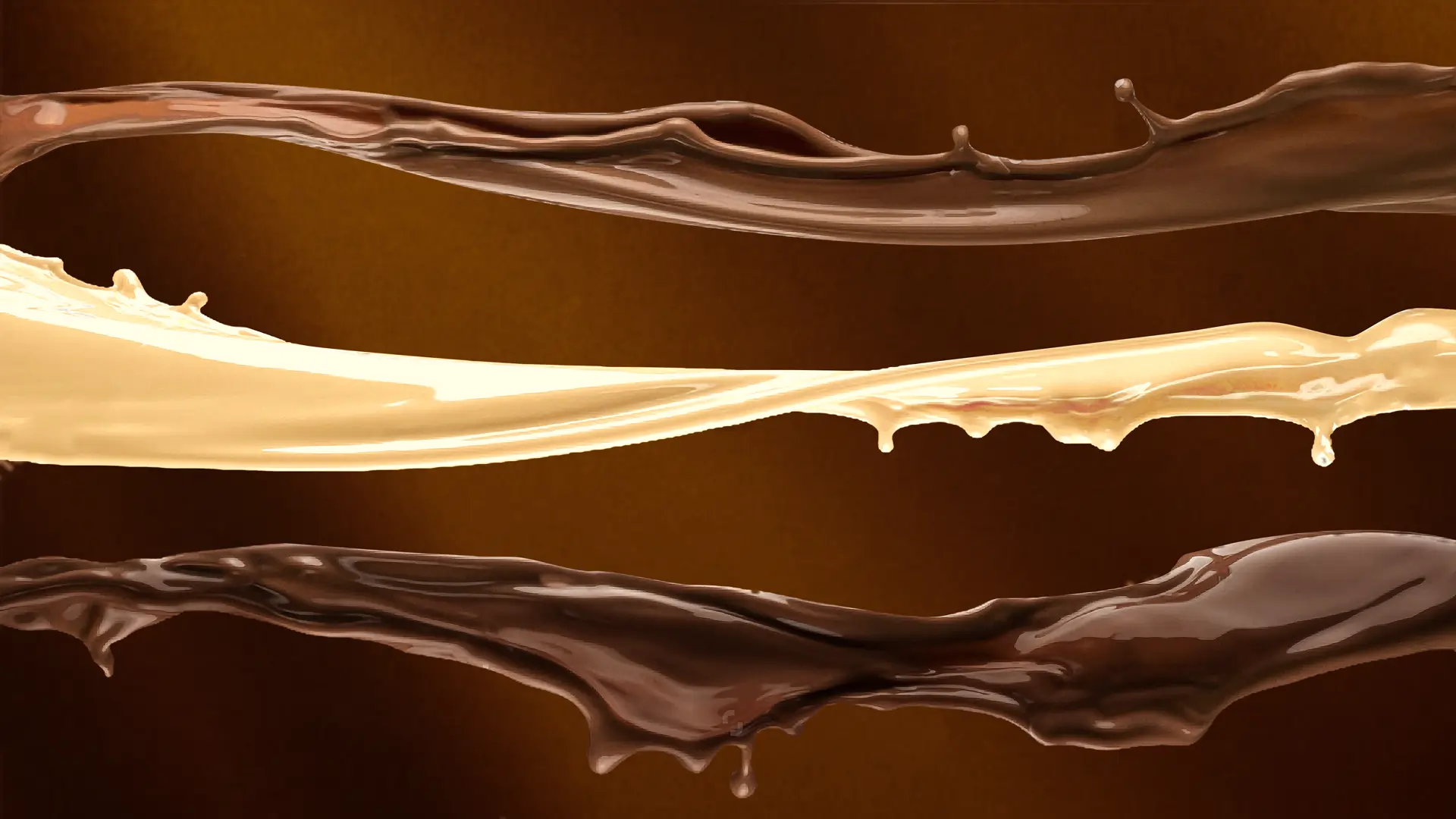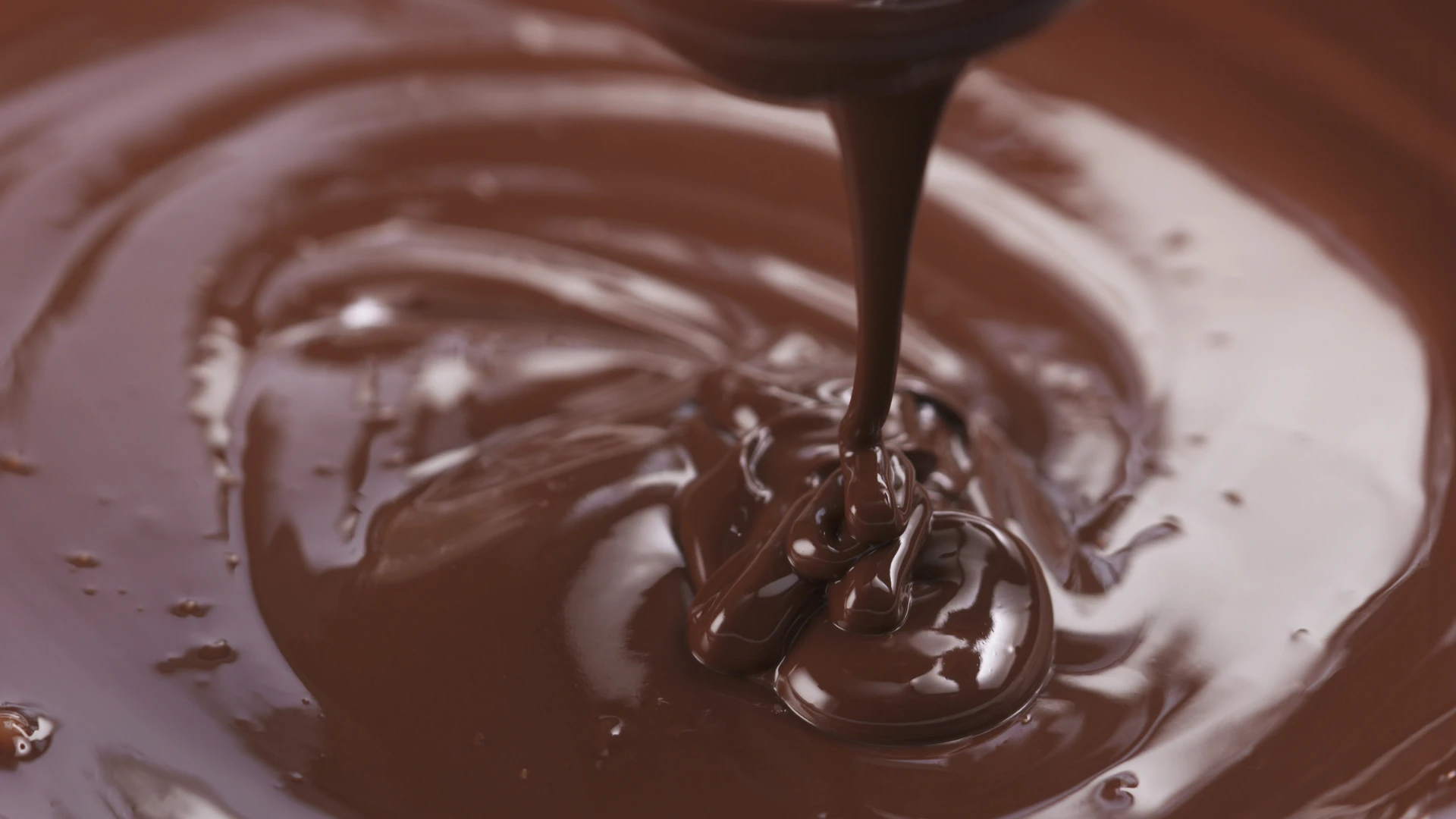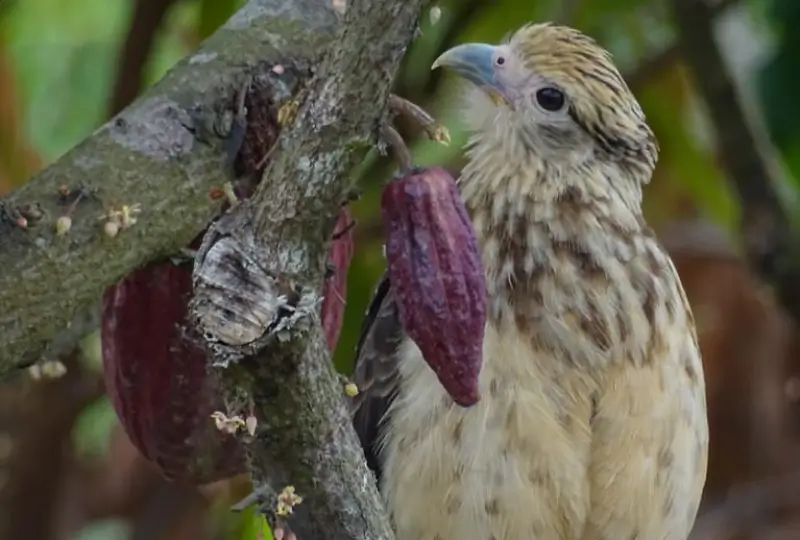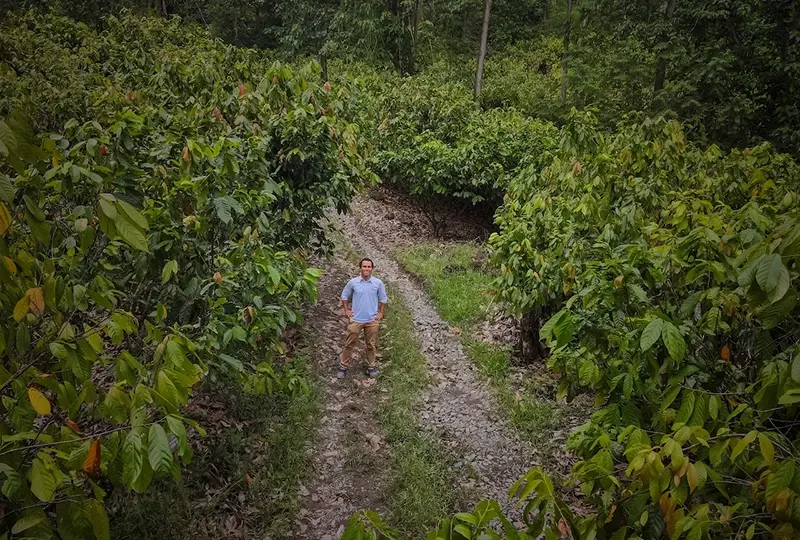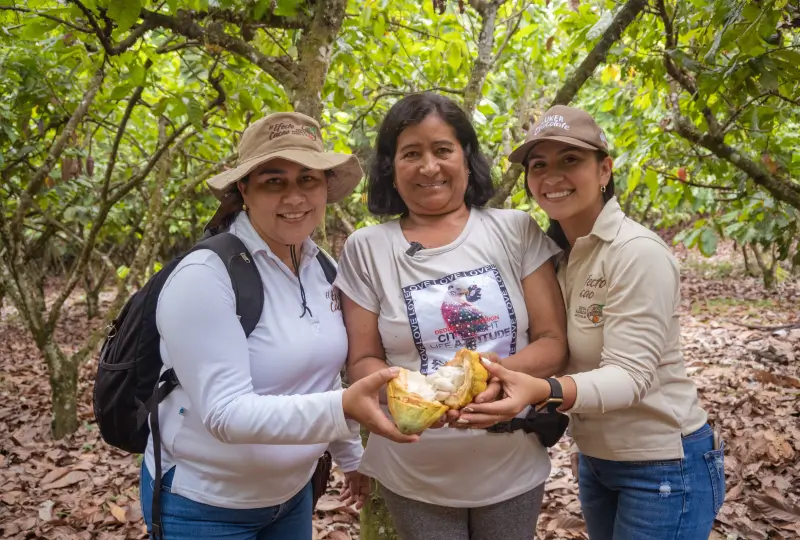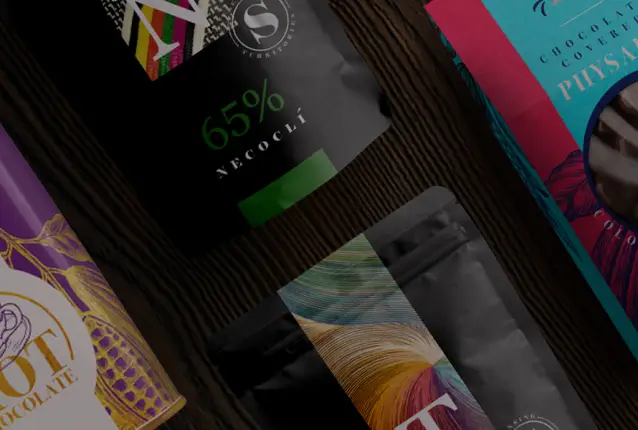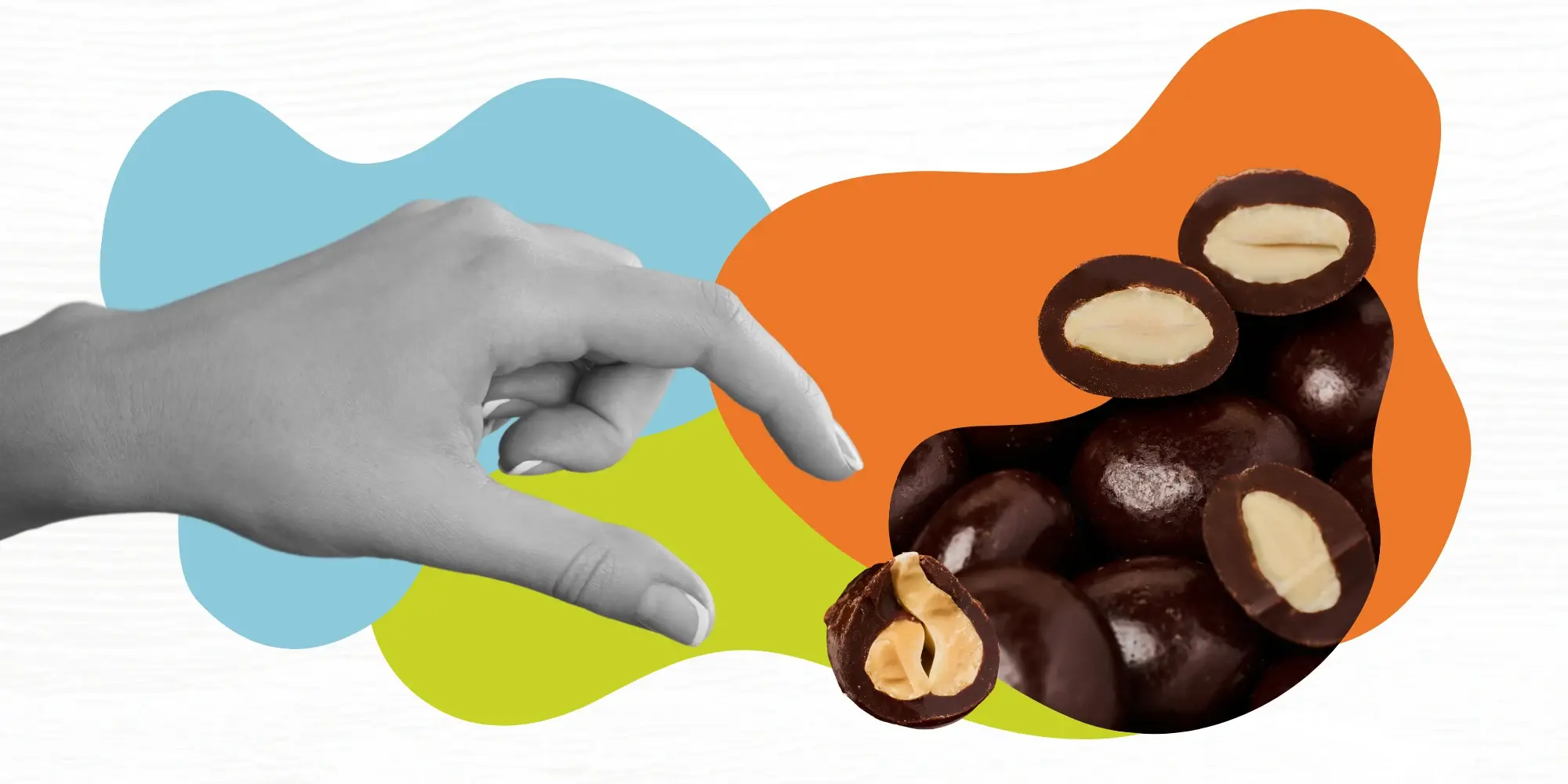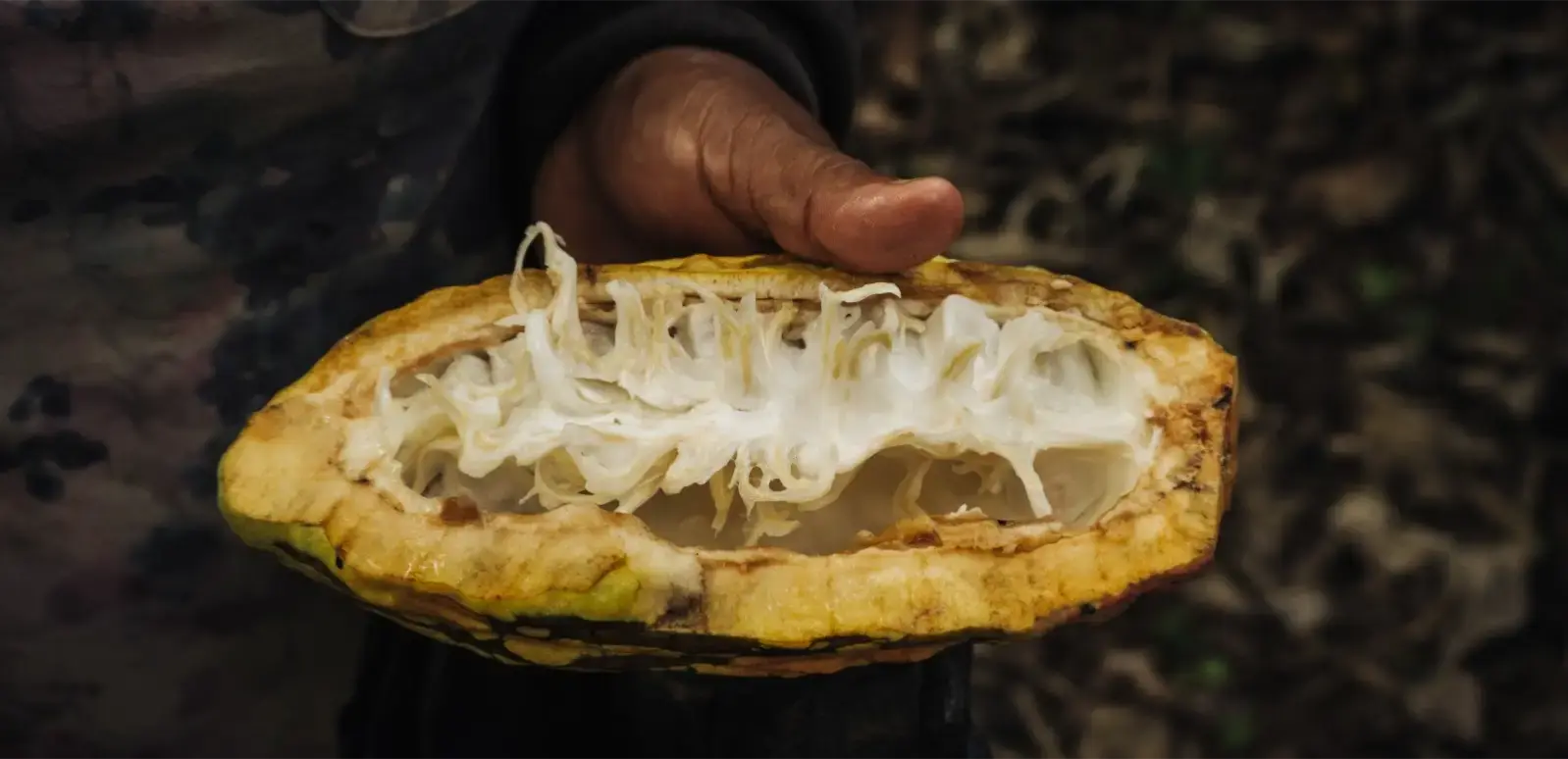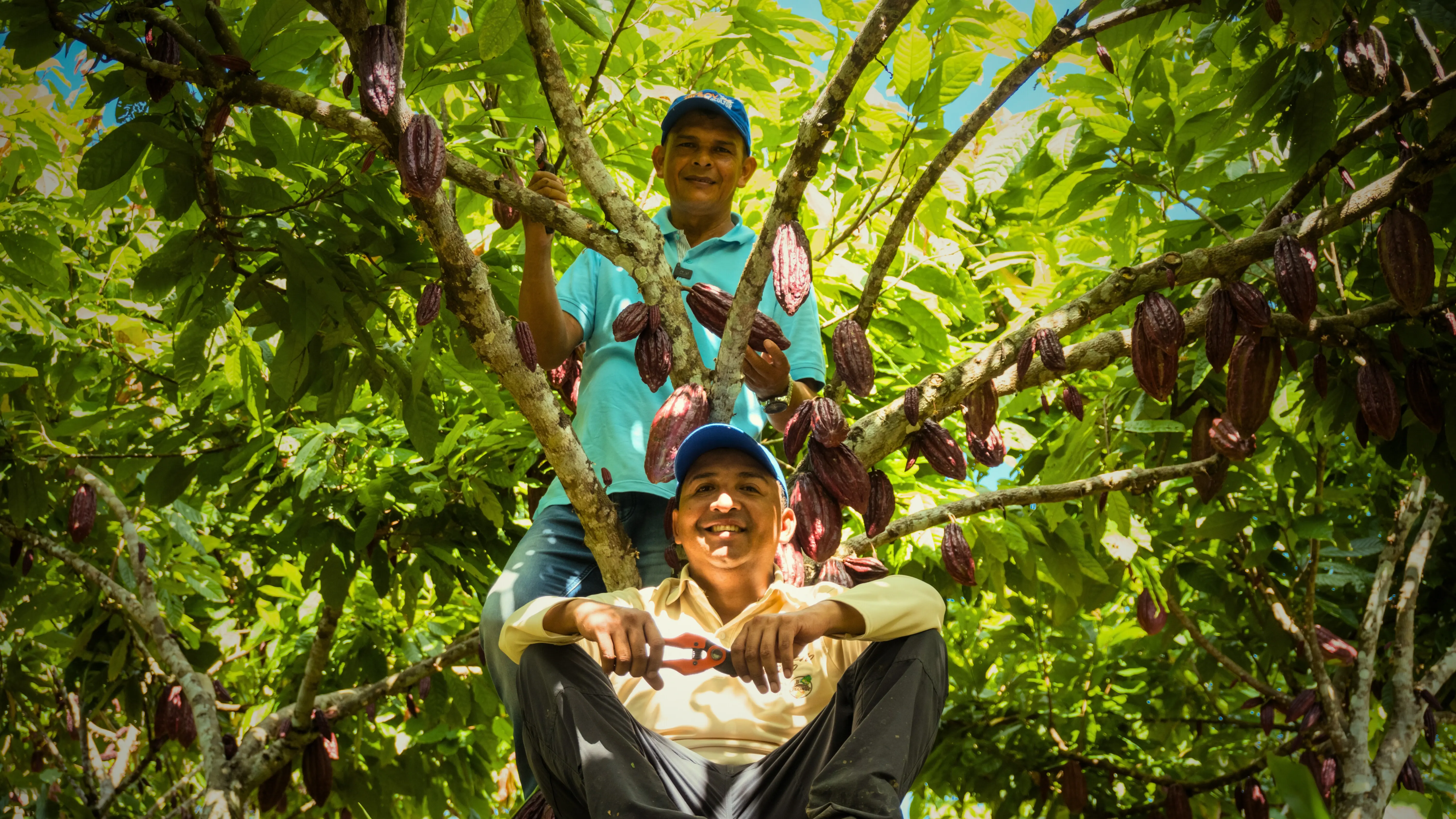This post was originally published on February 21st, 2024, and is updated constantly to inform you of the latest news on the EU Deforestation Regulation.
The European Union Deforestation Regulation (EUDR) is critical in advancing sustainability and accountability across global supply chains. As the regulation’s timeline remains uncertain, with a potential one-year postponement currently under consideration, Luker Chocolate is already fully prepared to comply under any timeline. Our commitment to deforestation-free chocolate and proactive measures position us as a leader in driving positive change within the industry.
Navigate this menu or keep on reading to discover more:
- EUDR Update: Postponement and Amendments Explained
- What is the EU Deforestation Regulation on Chocolate Products?
- What does the regulation mean for the chocolate industry?
- Next steps for chocolate companies
- How is Luker Chocolate adapting to new regulations? Our platform for full traceability
- Frequently asked questions
Latest updates on the EUDR implementation timeline
With the regulation initially set to take effect on January 1, 2026, Luker Chocolate has made significant progress in monitoring systems to ensure traceability from nearly 2,000 farms.
As of June 29, 2023, the European Union has taken a decisive step in the fight against deforestation by implementing the Regulation on deforestation-free products.
The EUDR’s compliance deadlines may be extended, with large operators potentially required to meet the regulation by 30th December 2025, and micro and small enterprises by 30th June 2026. This postponement, along with the introduction of a new “no-risk” category for countries, was finally approved by both the European Parliament and the Council.
|
📃The Commission, on May 22, adopted the Implementing Act on the country benchmarking system under the EU Deforestation Regulation (EUDR). The Implementing Regulation classifies countries according to their risk of deforestation associated with the production of the seven commodities covered by the EUDR: cattle, cocoa, coffee, oil palm, rubber, soya, and wood. Check the official documents: |
The “no-risk” category introduces a new classification for countries demonstrating stable or increasing forest area development. This amendment aims to tailor compliance requirements to reflect negligible deforestation risks, fostering a more practical and geographically specific implementation.
For more details on this extension, you can refer to the official announcement from the EU Council.
This groundbreaking regulation is not just a policy change; it’s a call to action for businesses across various sectors, particularly those involved in commodities such as cocoa, a key ingredient in chocolate production.
🌳Colombia’s EUDR Classification and Implications for Cocoa SourcingIn the recent update to the EU Deforestation Regulation (EUDR), Colombia has been classified as a “standard-risk” country for deforestation. While this classification requires full due diligence obligations to be met, it's important to emphasise that cocoa is not a driver of deforestation in Colombia. The standard-risk classification reflects broader national environmental challenges, but it does not indicate concerns specific to cocoa supply chains. As a company fully committed to traceability and transparency, Luker Chocolate has implemented Luker Trace, our cutting-edge traceability platform, to track our cocoa and verify its deforestation-free status. This ensures that the cocoa sourced from Colombia and our other supply chains is fully compliant with EU regulations and meets the highest sustainability standards. |
What is the EU Regulation on Deforestation?

The EUDR - Regulation (EU) 2023/1115 on deforestation-free products mandates that any operator or trader dealing with commodities like cocoa must ensure their products are not sourced from recently deforested land or contribute to forest degradation. The primary objective is to curb the environmental impact of agricultural expansion, often responsible for deforestation. As a significant consumer of these commodities, the EU acknowledges its role in this global issue and is leading efforts to mitigate it.
Companies dealing with commodities like cocoa, coffee, cattle, oil, palm, rubber, soy, and wood must provide sufficient evidence of non-deforestation in the crops from which their products are sourced as far back as December 31st, 2020.
The non-compliance consequence is severe.
For now, products not meeting the new requirements are prohibited from commercialisation in the EU market after December 30, 2026.
Find out about what Luker Chocolate is doing to protect the environment!
Implications for the Chocolate Industry
The EUDR regulation signifies a substantial shift in how cocoa is sourced for brands, businesses, and sustainable chocolate manufacturers. They must now prove that their cocoa is not linked to deforestation. This change demands a more transparent supply chain and greater accountability. Businesses have an 18-month window from June 29, 2023, to December 30, 2024, to align with these new standards. In Luker Chocolate, we launched a pilot project to produce chocolate using traceable cocoa for three product lines, a key step that helped us meet our goal to start European exports by October 1, 2024, in compliance with the EUDR.

Technicians from Luker visited farms in Tumaco to carry out the verification process.
Micro and small enterprises are given extended adaptation periods and specific provisions to help them transition.
The regulation requires chocolate manufacturers to hold evidence by 2026 to demonstrate that:
- The products exported to the EU do not originate from recently deforested land – this requires the collection of information, data, and documents to prove the land has not been subject to deforestation after December 31, 2020
- The products have been produced following the relevant legislation of the country of production.
- The products exported comply with the respect of human rights.
|
⭐ FOR LUKER CHOCOLATE: Colombia developed a voluntary no-deforestation agreement in 2018. The government, Fedecacao, Casa Luker, IDH, and other organizations signed an agreement to achieve deforestation-free cocoa production. This treaty promotes the protection and restoration of forests in the cocoa value chain. Also, “Colombia was the first country in Latin America to join the World Cocoa Foundation – WCF – Global Cocoa & Forests Initiatives with a clear commitment to have a zero-deforestation cocoa value chain and to improve the quality of life of cocoa farmers in the priority areas for the implementation of the Peace Agreement.” as said by the Cocoa, forests and peace initiative |
The Path Forward for Chocolate Companies
Adapting to these new regulations is not just a compliance issue; it’s an opportunity to lead in sustainable practices.
“We embrace the new regulations as we continue to shape a responsible and sustainable future for chocolate production.”
Julia Ocampo – VP of Sustainability & Cocoa Sourcing at Luker Chocolate
Chocolate companies must reassess their supply chains, engage in more sustainable sourcing practices, and collaborate with cocoa farmers to promote agroforestry and other eco-friendly farming methods.
While the EUDR regulation will not be fully enforced until January 2026, we have already conducted extensive simulations of our compliance systems with the official organisation to identify areas for improvement. As a result, we are fully prepared for the regulation’s enforcement in 2026, ensuring that our operations remain transparent and aligned with evolving legal requirements.
To support businesses navigating these changes, the European Commission has released a series of training materials, including two introductory videos and a comprehensive User Manual. These resources are essential for understanding how to comply with the upcoming regulations.
| 🗨️ If you’re one of our clients and have specific concerns about compliance or navigating these new regulations, feel free to reach out to us directly for support. We’re here to help you ensure a smooth transition and successful compliance with the EUDR. |
To support your compliance journey, we recommend reviewing the following resources:
- EUDR Implementation Guidance (14 November)
- Platform Registration Guide
- Proposed Amendments Document
- Official Press Release on the Postponement
This shift towards sustainability benefits the environment and resonates with increasingly eco-conscious consumers, opening new avenues for brand growth and consumer trust.
What is deforestation-free chocolate?
A deforestation-free chocolate product is produced without contributing to the destruction or degradation of forests.
The concept is intrinsically connected to the 2023 EU Regulation on Deforestation-Free Products. The regulation requires that chocolate products are not sourced from recently deforested land in the EU market. Deforestation-free chocolate products adhere to this mandate, ensuring compliance with EU standards.

Chocolate manufacturers must verify and disclose the origins of their cocoa, a core principle of deforestation-free chocolate production.
🌾 Agroforestry: A Sustainable Solution
Agroforestry, an integrated approach that combines agriculture and forestry techniques, emerges as a viable and sustainable solution in cocoa production. Here’s how agroforestry can make a difference:
- Diverse Planting: Agroforestry involves planting cocoa trees alongside other trees and plants. This diversity ensures a more balanced ecosystem, promoting biodiversity. The presence of various plant species supports a range of wildlife, maintaining ecological equilibrium.
- Soil Health: Mixed planting in agroforestry helps maintain soil fertility and structure. The diverse root systems of different plants reduce soil erosion, enhance water retention, and improve nutrient cycling in the soil.
- Carbon Sequestration: Trees in agroforestry systems act as carbon sinks. They are crucial in mitigating climate change by absorbing atmospheric carbon dioxide.
- Economic Benefits: Agroforestry can provide farmers with multiple sources of income. Besides cocoa, they can harvest fruits, nuts, and other products from the same land, increasing their economic resilience.
- Preservation of Native Forests: Reduces the need to clear additional agricultural forest land, thereby protecting existing forests.
How is Luker Chocolate leading the way in EUDR compliance?
Deforestation is one of the most serious environmental problems that the planet faces today during a period of severe climate change.
Between 2005 and 2017, more than 1.5 million hectares of forest were lost in Colombia, according to a study by the International Center for Tropical Agriculture (CIAT). Most of this deforestation occurred in regions of the country that have been affected by armed conflict and illicit crops for decades. These are mainly in areas with agro-ecological potential for cocoa production, such as the Amazon region.
In the country, cocoa production is mainly done by small farmers, with 1.5 to 3 hectares cultivated under agroforestry systems. This means that cocoa is considered one of the value chains with more significant social and environmental positive impacts and is not catalogued as a cause of deforestation. Cocoa crops are known in Colombia for their ecological benefits, such as soil restoration and carbon sequestration, due to the implementation of agroforestry systems.
Luker’s approach is rooted in promoting and protecting biodiversity, water resources, and forests to enhance ecosystems and achieve environmental balance.
But it extends beyond this to the cocoa-producing communities’ economic and social well-being as part of our triple impact model. Farmers work closely with us in the supply chain and empower themselves through programs where they obtain the information and skills they need to work in balance with the environment. This ensures the cocoa Luker works with is grown under sustainable practices and allows us to confirm that our chocolates comply with the EU regulation requirements on deforestation-free supply chains.
How is Luker adapting to the new deforestation regulations?
The regulation requires all exporting operators to hold evidence by 2024 that:
(a) The products we export to the EU do not originate from recently deforested land.
(b) The products have been produced according to Colombian legislation.
In this sense, we developed an ambitious traceability project that allows us to evidence and monitor, through geo-referenced polygons and lot tracking, that the cocoa-growing farms from which we source our cocoa are deforestation-free.
.webp?width=880&height=495&name=Luker-trace-system-polygons%20(1).webp)
|
Luker Trace- our platform for traceability🔎🖥️ We wanted a platform that ensured our cocoa is fully traceable and compliant with the EUDR, so we developed Luker Trace. This system tracks every lot produced, documenting critical information such as the number of producers, the size of their cultivated land, and geolocation data via satellite polygons. This data allows us to monitor forest coverage, ensuring no deforestation occurs in the areas where our cocoa is grown. Additionally, each bag of cocoa destined to produce products going to the EU market is fully traceable, marked, and EUDR-compliant. Luker Trace goes beyond just compliance. It offers transparency and accountability at every step of the supply chain, from producer to shipping. This data provides verifiable proof of our sourcing practices and makes it easier for businesses to demonstrate compliance when exporting chocolate products to the EU. Having such detailed information, Luker can ensure that every cocoa shipment is aligned with the EUDR's strict requirements, offering our partners and clients peace of mind. |
In line with broader industry practices, we have also incorporated the World Cocoa Foundation’s Deforestation Risk Assessment Methodology. This enables us to assess and mitigate risks effectively, keeping our supply chain resilient and sustainable. You can explore more about this methodology here.
This allows us to exercise the due diligence required by the EU regulation with the collection of information, data, and documents needed to prove the land has not been subject to deforestation after 31 December 2020.
Regarding requirement (b), it is essential to highlight that in Colombia, the expansion of cocoa crops is done under a controlled strategy supervised by national agencies and international cooperation to prevent future deforestation.
Furthermore, in Colombia, cocoa production is mainly done by small farmers, with between 1.5 and 3 hectares of cocoa cultivated under agroforestry systems; therefore, cocoa is considered one of the value chains with more significant social and environmental positive impacts and is not catalogued as a cause of deforestation.

Technicians from Luker visited farms in Tumaco to carry out the verification process.
Find out more about the first project we did on fully traceable chocolate more than 2 years ago!
With the regulation set to take effect on January 1, 2026, we have made significant progress in monitoring systems to ensure traceability from nearly 2,000 farms. Dark couvertures are classified as relevant items subject to regulatory oversight, while white couvertures are not included. We recommend reviewing the requirements and establishing due diligence procedures according to your company’s classification under the regulation. For more details, visit EUDR Regulation.
The EUDR registration platform is now live, marking a significant milestone for companies beginning their compliance journey. While the platform currently supports initial registrations, the functionality to upload due diligence documentation is still under development. Luker Chocolate has completed its registration and is fully prepared to submit the required documentation as soon as the system becomes operational.
Our commitment to a positive impact
In a testament to our commitment to a positive impact on the planet, Luker Chocolate was the first private sector company to sign the Cocoa, Forest, and Peace Initiative (2018) to prevent deforestation in cocoa production in Colombia. It is the first significant pact for the country’s sustainable development of cocoa production that contributes to the protection and conservation of the Colombian ecosystem. It also will transform the realities of the country’s cocoa farming families today.
Additionally, we signed our commitment to Race to Zero in 2021 to reduce our emissions, achieve carbon neutrality by 2022, and transform the cocoa value chain into a sustainable value chain. As producers, we understand our responsibilities through our operations, communities of influence, and the whole planet. This commitment reinforced our core value of striving to become more sustainable and climate-positive. If we don’t protect our world, we can’t protect our crops.

To act upon these commitments, we work hand in hand with producers, clients, and partners of The Chocolate Dream, not only on actions to avoid negative environmental impacts but also on projects to actively protect and restore biodiversity, water sources, and forests.
Find out more about what Luker Chocolate is doing to protect the environment!
As the EUDR evolves, we remain steadfast in our mission to create a deforestation-free cocoa value chain. This delay offers additional time for many in the industry to adapt, but at Luker Chocolate, we are proud to lead by example. Our efforts underscore our unwavering commitment to sustainability, empowering cocoa communities, and transforming the chocolate industry into a model of environmental responsibility.
You can also consult the EUDR’s frequently asked questions below:
FREQUENTLY ASKED QUESTIONS
To continue informing you about the European Union's regulations on non-deforestation (EUDR), today we bring you answers to frequently asked questions on the topic that have come through our various channels.
The EUDR:
Regulation (EU) 2023/1115 on deforestation-free products mandates that any operator or trader dealing with commodities like cocoa must ensure their products are not sourced from recently deforested land, contribute to forest degradation, and have been produced in compliance with the relevant legislation of the country of origin, in this case, Colombia. All this through the due diligence process.
Products not meeting the new requirements are prohibited from commercialization in the EU market after December 30, 2024.
Companies dealing with commodities like cocoa, coffee, cattle, oil palm, rubber, soy, and wood must provide sufficient evidence of non-deforestation in the crops or plots of land from which their products are sourced as far back as December 31, 2020.
Dark, plant, and milk couvertures are classified as relevant items subject to regulatory oversight; white couvertures are not included.
All products marketed to or from the European Union (regardless of the company's origin) are subject to regulation.
In addition to the EU, other countries are also in the process of adopting similar regulations:
USA The Forest Act (UKFRC) provides a framework for long-term actions to combat illegal deforestation. It involves collaboration with stakeholders, an advisory council of experts, and international governments.
The UK Forest Risk Commodity Regulation (UKFRC) introduces a due diligence system to reduce the impacts of deforestation.
As a chocolate supplier, Luker must conduct a due diligence process that includes collecting evidence to verify that the product is traceable, deforestation-free, and legally produced, assessing the risks of non-compliance, and taking mitigation measures if risks are identified.
Additionally, for each shipment to the European Union, the following documentation must be sent to the EU information system:
A due diligence declaration signed by Luker includes details of the exported product, such as the Harmonized System code, product description, quantity, and country of production.
The geolocation of all land plots where the cocoa beans were produced.
Luker Chocolate has developed LukerTrace, a geo-referencing system to manage accurate and updated GPS maps of farm perimeters. These maps are verified by ground teams and integrated with satellite tracking to monitor deforestation in real time. This allows for ongoing data analysis from December 2020 onward, ensuring that the agricultural practices within Luker's value chain are free from deforestation. Additionally, we are maintaining this verification standard for new crops and preventing cultivation in unprotected areas like nature reserves or national parks.
As part of our sustainability plan, The Chocolate Dream, Luker Chocolate actively engages farmers, their families, cocoa-growing communities, and cacao associations in various training sessions and initiatives to prevent human rights violations. We have set up an 'ethical phone line' to allow farmers to report any potential human rights issues related to cocoa sourcing.
Luker Chocolate's goal is that all products produced from October 1st, 2024, with destination to Europe, have the documentation and traceability to prove the non-deforestation regulation EUDR. The full implementation will be ready once the EU information system goes live. The process continues to make verifications, validations, and information adjustments as appropriate to the EUDR updates and the EU information system. According to the EU Commission, registration for the EU System is estimated to start in mid-November.
We are committed to preventing deforestation and promoting agroforestry and other agricultural practices that contribute to biodiversity protection in the regions where we source our cacao directly from cocoa farmers. In addition, within the traceability exercise, where we have visited more than 3,500 farms, we promote good agricultural practices and forest protection, and we have developed human rights training as a preventive and strengthening action. In parallel, we are working closely with 36 national and international associations and cocoa suppliers with whom we are building and developing the traceability process and strengthening human rights and risk identification as crucial actors in the cocoa chain.
For example, with the École des Entrepreneurs du Québec EEQ and the German cooperation agency GIZ, we are training cocoa producers about the regulation and introducing them to a free mobile tool for continuously recording information about their crops.
Yes, currently, 100% of our cacao is traced to suppliers, including the region of origin, transport factors, and food security practices.
We support data for over 8,000 producers at the farmer's level, but there is still a significant effort for our entire supply chain, so we prioritize implementing the traceability process for products that are ultimately destined for the European Union.
Navigating these changes is a complex process that involves continuous learning and collaboration. You can count on us for support and guidance. We will keep you updated on our progress and any new EU guidelines that emerge. Meanwhile, we remain attentive to your concerns and ready to address any questions you may have.
